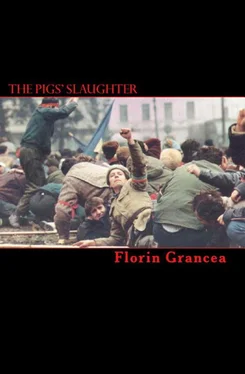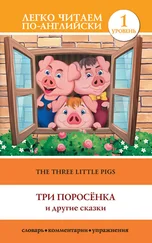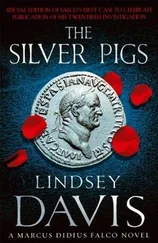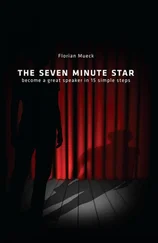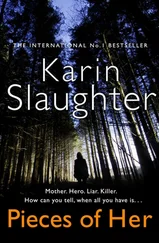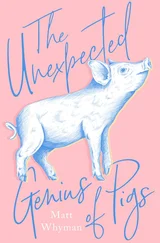I rolled over under the heavy woolen duvet and fell asleep. I was free. I was going to be free. My last vivid memory of that 21st of December was the willow smoke perfume lingering on my dirty fingers.
As it happens, the perfume of smoke was Jean Louis Calderon’s last vivid memory too. As I drifted off he was being killed near the Intercontinental Hotel in Bucharest, one block away from the soon to be renamed, Jean Louis Calderon Street. That street, that area must have felt familiar to him, as the buildings there resembled his very own Paris and the neighborhood around Liberation headquarters, but he never imagined these streets going under French names.
As a Frenchman he knew what was unfolding before his eyes and why he was there. Vive la Révolution!
In 1789 his countrymen and women took to the streets to fight against tyranny. Liberté, Égalité, Fraternité were becoming so palpable, so real. “Fraternité” was the key word and that was why he refused to watch the events from the safety of the Intercontinental Hotel, like all the Anglo-Saxon journalists. So there he was, on the street, surrounded by tanks and soldiers. People shouting, guns rattling, a barricade being raised like back in 1789 and then being attacked. And defended. And conquered. And it was that girl that he saw, happy and beautiful, facing the bullets and he wanted to be like her, wanted to get to know her and wanted to remember her forever. But smoke was the last thing he was able to think of. Jean Louis Calderon died in an anti-climax to his own exciting life of storytelling.
Waking up on December 22nd I didn’t think about Jean Louis Calderon. I didn’t know him and his story, and, even 5 years later, when I was myself an apprentice journalist running to press conferences held in some French-looking buildings on Jean Louis Calderon Street, it never crossed my mind that the street was named after a journalist.
Unlikely. Maybe a composer or a painter that everyone but me knows. That had to be it. That was the non-story that Jean Louis Calderon Street told.
As it happens, my dad took a day off on that 22nd of December. It was Friday and it had nothing to do with the pig. “If something happens it’s better not to be there”, he said to my mom when she left at 6:30 for her job. She had a job in a glass factory that employed half of my town’s population. The other half was employed at Marsa Mechanical, a factory hidden in the woods that made huge dump trucks and armored military vehicles. My father had worked for both, but he got bored and changed his job to one that gave him freedom. So, on that December 22nd he was head of the Civil Defense in Avrig, my tiny Transylvanian town.
As a matter of fact nobody else worked with him in the Civil Defense. The Civil Defense was a nonexistent department in the Town Hall, created maybe because Ceauşescu had had a bad dream once in Bucharest.
“I have to think about measures for times when floods, fires and earthquakes happen. Also hiding places for when the Russians decide to bomb us”, he once told me.
“But we never have floods, fires or earthquakes here,” I replied. “And there is nowhere to hide here, I never heard of shelters in Avrig”. My reply made him laugh:
“That’s why I took this job”.
He had to report to the military, now and then, and the military, in the person of “The Colonel” started to attend our picnics on Sunday. They were a nice family from Cisnadie, one that we kept in touch with even after my dad had gone to meet Jean Louis Calderon.
But of course that was something I didn’t know that morning. News like from another world blared from the radio. Radio Free Europe was informing us that Ceauşescu’s days were numbered. There was a Revolution happening in Romania, a bloody revolution, and Romanians were united and standing against their “beloved” dictator.
I could tell my father was afraid. Expectant and afraid. As an employee of the Town Hall he WAS the fucking state! Why did he have to change his job? He had nothing to fear as a technician with Marsa Mechanical, but that wasn’t the situation anymore.
“Go and get the smoke going, or we ain’t gonna eat sausages this year”, my father ordered. “Then, come back to the kitchen, we still have work to do”.
The willow I got that year was so dry that it took me less than a minute to make the fire. I watched it for a few moments while I warmed my hands. The fire was in a large bucket placed right beneath our sausages, caltaboshi, pate and toba. They all looked cold, with traces of fat dripping from last night. I had to be quicker. The smokehouse wasn’t supposed to be hot. Minus temperatures were preferred. I took a bag of willow sawdust and poured it onto the fire. The secret was to use just enough to keep the fire going beneath it and produce smoke. If I poured more than just enough, the fire would go out and there would be no smoke. If I poured less than just enough, the fire would eat through the sawdust and burn with open flames, something which we had to avoid. The meats would surely rot if warm.
I was satisfied with my work and looked at my watch making a mental note. Every hour I had to come back to pour more sawdust into the bucket. I went to the door, and then, kicking the cat to stop the hungry animal from getting in, I went out and locked the smokehouse door behind me. It wasn’t unheard of that thieves, especially gypsies, would steal people’s sausages at night or in broad daylight, so I had to be careful. Only a couple of days before, when my neighbors got up to slaughter their pig for Ignat’s Day, they discovered it gone. Three empty bottles of beer had been dropped where the pig was, and the Militia man said: “Smart, they took it while you were asleep so you wouldn’t hear anything”, but then he added, “If you find out who the thieves are, inform us straightaway so we can arrest them”, and he hurried away because he, too, had a pig to kill. At that moment, my entire family was counting on me and I was going to do it right.
“Well done!” My father said to me when I entered the kitchen. From the window he could see the smoke rising from under the heavy snow that covered the roof of the smokehouse. He didn’t know, and neither did I, but it was the last winter we would see that roof. The following spring we knocked the smokehouse and rebuilt it beside the barn. My mom wanted more space for flowers in the front yard and the smokehouse stood in her way.
Breakfast was rye bread, beans, pickles and zacusca, a Romanian version of ratatouille, over-boiled so we used it as a spread. I wolfed it down in big mouthfuls. My grandmother entered the kitchen with a big frying pan. My dad brought a heavy wooden board from outside and his butcher knife. I finished my meal quickly. Felicia, my sister, had already taken her breakfast upstairs to eat it in our room.
Now, that the table was clean, my dad set half of the pig’s ribs on it and he started to separate them with a sharp knife. I helped. One hour we worked in silence. After we were done we put the separated ribs in two empty and clean buckets and placed them back in the pantry.
He came back with the other half of the pig’s ribs and then fixed a drink and lit a cigarette. It was time for me to go and check the news. The TV was upstairs with my sister.
“Romanians, remain in front of your TV sets! An important communiqué for the Nation will soon follow!”
As soon as I entered the room I heard the announcement. The voice from the black & white Opera TV set was reproducing a stereotypical message from war movies about the 23rd of August, 1944, the day Romania changed sides in the war and started to fight against the Germans. Making friends with the fucking Russians wasn’t a choice I supported, nor understood. As a Junior High School student, then in my last year, I was quite opinionated and called all ugly teachers and students — not that there were many — “as beautiful as the Russian language”.
Читать дальше
